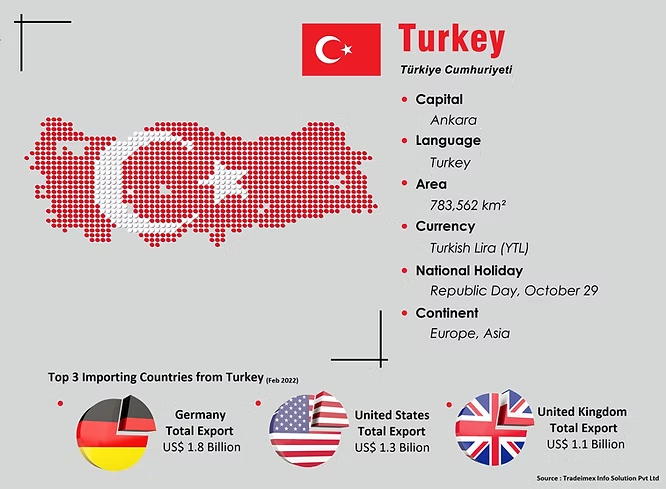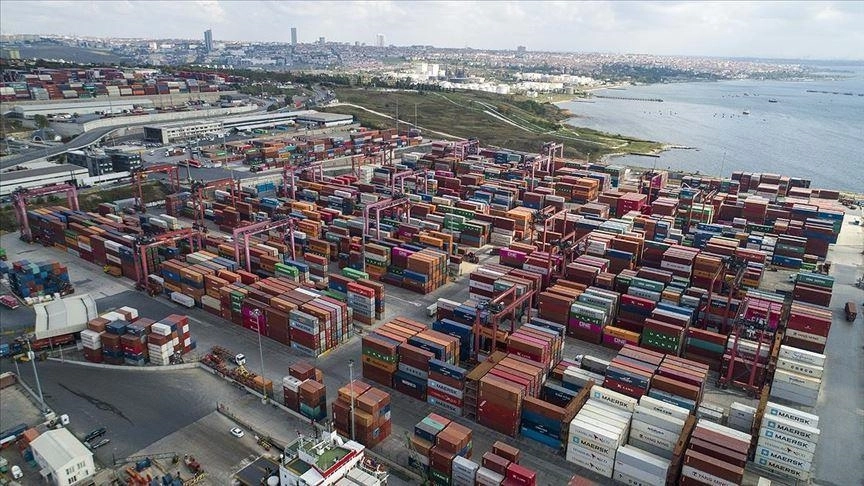What propelled Turkey's exports to an all-time high of $25 billion in July? Why is this milestone significant for the country's economy? How can Turkey sustain this growth in the face of global challenges? This article delves into the factors behind Turkey's export boom, its economic implications, and what lies ahead for the nation's trade ambitions.
Turkey's Export Milestone: Breaking Down the Numbers
Turkey's export sector achieved a historic feat in July, reaching $25 billion in monthly exports for the first time. This represents a 13.4% increase compared to the same period last year, showcasing remarkable resilience amid global economic uncertainties. The automotive, chemical, and textile industries led the charge, contributing significantly to this growth.
A real-world example of this success can be seen in the automotive sector, where Turkish manufacturers have expanded their reach to new markets in Africa and Latin America. Companies like Ford Otosan and Tofaş have been pivotal in driving these export figures upward.

Key Drivers Behind Turkey's Export Success
Several factors have contributed to Turkey's export boom:
- Diversified markets: Turkey has expanded its trade partnerships beyond traditional EU markets to include Middle Eastern, African, and Asian countries.
- Competitive exchange rates: The Turkish lira's valuation has made exports more attractive in global markets.
- Government incentives: Export promotion programs and tax benefits have encouraged businesses to expand internationally.
A practical application of this strategy is visible in the textile industry, where Turkish manufacturers have successfully penetrated the U.S. market with competitive pricing and quality products.
Sector-by-Sector Performance Analysis
Automotive Industry Leads the Charge
The automotive sector accounted for 18% of total exports, with vehicles and parts shipped to over 180 countries. Turkish manufacturers have particularly strengthened their presence in European markets.
Textiles and Apparel Maintain Strong Position
Despite global competition, Turkey's textile exports increased by 9%, maintaining its position as one of the world's leading suppliers of high-quality fabrics and garments.
Emerging Sectors Show Promise
Defence and aerospace exports have experienced remarkable growth, increasing by 42% year-over-year, highlighting Turkey's expanding technological capabilities.
Geographic Expansion: Turkey's New Trade Corridors
While the EU remains Turkey's largest trading partner, accounting for 41% of exports, the country has successfully diversified its markets:
- Middle East exports grew by 22%
- African markets saw 18% growth
- North American exports increased by 15%
A notable example is the growing trade relationship with the United Arab Emirates, where Turkish exports have doubled in the past two years.

Challenges and Opportunities Ahead
While the record exports are commendable, Turkey faces several challenges:
- Global economic slowdown concerns
- Rising energy costs affecting production
- Supply chain disruptions
However, opportunities abound in:
- Digital transformation of export processes
- Green energy exports
- High-tech manufacturing
The government's recent focus on renewable energy equipment exports presents a practical opportunity for sustainable growth in coming years.
Sustaining the Momentum: Strategies for Continued Growth
To maintain this export momentum, Turkey needs to:
- Enhance research and development investments
- Improve logistics infrastructure
- Develop specialised export financing tools
- Strengthen brand of Turkey in global markets
A successful example of this approach is seen in Turkey's white goods industry, where companies like Arçelik have built strong global brands through consistent quality and innovation.







